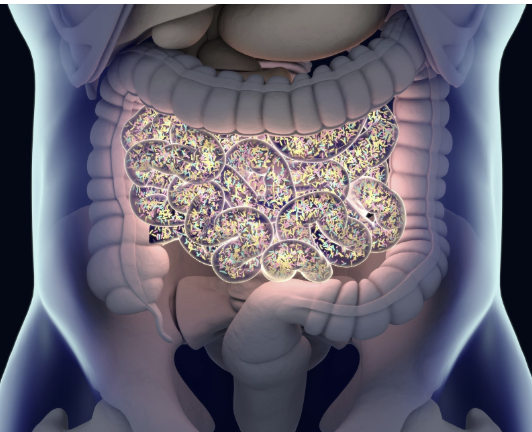What is SIBO? Your Simple Guide to Understanding and Treating Small Intestinal Bacterial Overgrowth (SIBO)
Have you ever found yourself grappling with the discomfort of abdominal distension, bloating, or cramping, seemingly unaffected by the type of food you consume?
If so, you might resonate with the notion of Small Intestinal Bacterial Overgrowth (SIBO), a prevalent gut disorder that can significantly impact your well-being. It is estimated 500 million undiagnosed cases of SIBO are currently present worldwide.
Let’s embark on a comprehensive exploration of what SIBO entails, its root causes, the diagnostic process, and the array of treatment options available.
Deciphering the Essence of SIBO (Small Intestinal Bacterial Overgrowth)
Within the realm of functional wellness, SIBO has emerged as a pivotal topic. This condition is marked by an overgrowth of non-pathogenic bacteria in the small intestine. Typically housed in the large intestine, these bacteria, despite being non-pathogenic, can ferment dietary fibers and sugars, resulting in the generation of gases that trigger a spectrum of gut-related imbalances. Moreover, this process can inflict damage upon microvilli, the finger-like structures lining the stomach responsible for nutrient absorption. Left unchecked, SIBO has the potential to escalate into more severe complications such as histamine intolerance, leaky gut, and food allergies.
Unraveling the Tapestry of SIBO Symptoms
While symptoms may vary from person to person, a constellation of common indicators include:
– Abdominal distension
– Bloating
– Cramping
– Irregular bowel movements
– Gas
– Burping
– Reflux
Beyond the gut, SIBO can unleash a cascade of health implications, disrupting the efficient absorption of essential micronutrients such as Vitamin B12, iron, and magnesium. The repercussions extend beyond physiological realms, as SIBO is often intertwined with difficulties in weight management, hormonal imbalances, and a noticeable dent in self-confidence.
Identifying the Culprits: Causes of Small Intestinal Bacterial Overgrowth
In some cases, SIBO is triggered by single or short-term events like acute gastroenteritis, acute stress, or the use of medications such as proton-pump inhibitors that inhibit gastric acid secretions. Resolving SIBO in these cases may be more likely with a combination of diet and antimicrobial botanicals if the triggering event is no longer present. However, persistent antecedents can interfere with long-term resolution of SIBO. Let’s break down some of the primary, or most common causes of SIBO.
Abnormal Small Intestinal Flow:
- Linked to abdominal surgery
- Associated with endometriosis
Medication-Induced Factors:
- Narcotics causing slowed digestion
- Proton-pump inhibitors disrupting the gut microbiome
- Prolonged use of antispasmodics leading to constipation
Impaired Digestion:
- Imbalanced microbiome
- Chronic stress (constant “fight or flight” state)
- Low stomach acid
- Impaired bile flow
- Low secretory immunoglobulin A (sIgA)
Low Motility:
- Conditions like diabetes and hypothyroidism
- Autoimmune irritable bowel syndrome (IBS)
- Past traumatic brain injury (TBI) or mold exposure
Testing for Small Intestinal Bacterial Overgrowth
In the pursuit of unraveling the mystery of SIBO, the gold standard diagnostic method involves a breath test. This entails the ingestion of a sugar substrate, subsequently fermented by bacteria in the gut to produce gases. Breath samples are then collected to detect elevated levels of hydrogen sulfide, methane, or hydrogen gas—a telltale sign of SIBO. Distinguishing between methane-dominant, hydrogen-dominant, mixed, and hydrogen sulfide-dominant SIBO aids in tailoring a targeted approach to treatment.
Crafting a Path to Wellness: SIBO Treatment Options
Upon confirmation of a SIBO diagnosis, collaborative efforts with a licensed healthcare provider become indispensable. While recognizing the adage that ‘food is medicine,’ a holistic approach must also encompass lifestyle factors such as stress management, exercise, and quality sleep. Various nutritional therapies, including the Elemental Diet—a comprehensive amino acid formula serving as a meal replacement over a specified period—can disrupt the fuel source for overgrown bacteria, alleviating symptoms. Tailored interventions, considering factors like digestive support, micronutrient imbalances, and targeted oral support through supplementation or prescribed medication, are integral components of a multifaceted treatment strategy.
Navigating Treatment Options for Small Intestinal Bacterial Overgrowth
Unchecked SIBO not only prolongs distressing symptoms but also poses the risk of enduring damage to the gastrointestinal tract, with far-reaching consequences for overall well-being. If you suspect SIBO is impeding your ability to fully embrace life, seeking the guidance of an expert capable of conducting comprehensive testing and steering you toward a path of restoration is paramount.
Please note: This blog is not intended to be medical advice, nor is it meant to treat, diagnose, or cure any injury or illness. It is for informational purposes only.
References:
- https://www.chp.edu/our-services/transplant/intestine/education/about-small-large-intestines
- Fujimori S. What are the effects of proton pump inhibitors on the small intestine?. World J Gastroenterol. 2015;21(22):6817-6819. doi:10.3748/wjg.v21.i22.6817
- Skrzydło-Radomańska B, Cukrowska B. How to Recognize and Treat Small Intestinal Bacterial Overgrowth?. J Clin Med. 2022;11(20):6017. Published 2022 Oct 12. doi:10.3390/jcm11206017
- Jacobi, N. The SIBO Doctor. Updated 2022. https://www.thesibodoctor.com/

Rachel Scheer is a Certified Nutritionist who received her degree from Baylor University in Nutrition Science and Dietetics. Rachel has her own private nutrition and counseling practice located in McKinney, Texas. Rachel has helped clients with a wide range of nutritional needs enhance their athletic performance, improve their physical and mental health, and make positive lifelong eating and exercise behavior changes.
Read This Next
Micronutrients, or the vitamins and minerals your body needs, typically work like a team. To…
If you want to improve gut health, or even optimize your overall health, you’ve probably…
Have you ever found yourself grappling with the discomfort of abdominal distension, bloating, or cramping,…






